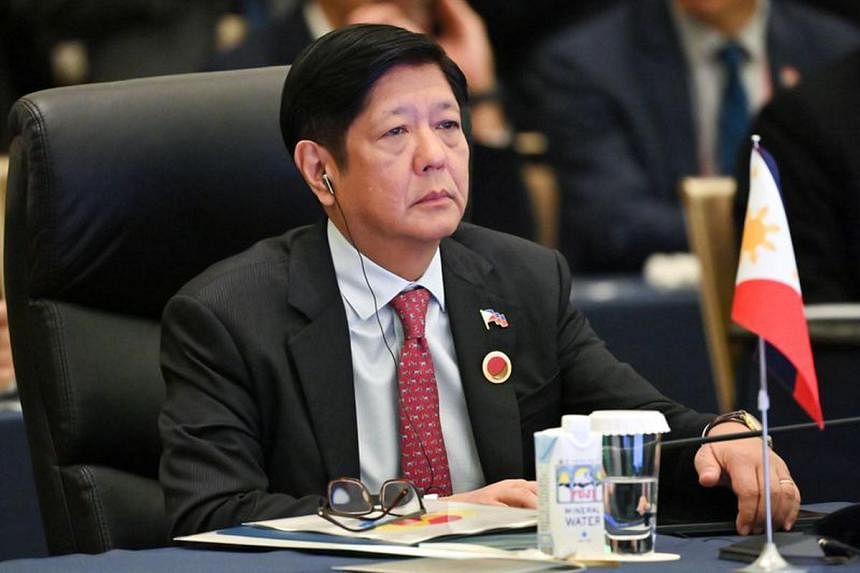Filipino politicians, business leaders, scholars call for dialogue over South China Sea situations
MANILA, Dec. 18 (Xinhua) -- Some politicians, business leaders and scholars in the Philippines have expressed their views that the maritime issues do not comprise the sum-total of relations between the Philippines and China, and called on the two sides to strengthen dialogue and consultation.
Philippine Foreign Undersecretary Jesus Domingo, in an interview with Xinhua, noted China is one of the most important economic and business partners of the Philippines, and that their economic and trade ties are "robust."
"It is always good to take a deep breath, take a step back and look at the totality of our relationship," Domingo said.
Maynard S. Ngu, Special Envoy of the President to China for Trade, Investments and Tourism, said he agrees that the maritime issues do not comprise the sum-total of bilateral relations, adding that the two sides should continue to expand their common ground in such fields as economic and trade cooperation.
George Barcelon, President of the Philippine Chamber of Commerce and Industry, said the tensions in the South China Sea "have been hurting the private sector and the business operations between the two countries."
"Any action that looks provocative is not healthy," Barcelon said. "It is about time to say, wait a minute, let's sit down and talk for a while."
Teresita Sy-Coson, Vice Chairperson of SM Investments Corp., said the Philippines and China are neighbors facing each other across the sea, and they need to handle disputes through peaceful negotiations.
Lucio Blanco Pitlo, research fellow at the Philippine think tank Asia-Pacific Pathways to Progress Foundation, voiced his concern that "the South China Sea tensions and disputes tend to dominate relations between the Philippines and China this year. And I think that is very regrettable."
The situations in the South China Sea "can affect productive and constructive ties between the two countries. We hope that this would be prevented going forward, and that trade, especially in relation to agriculture, manufacturing, and the inflow of Chinese investments and tourists in the Philippines, won't be affected negatively by the prominence of these disputes," he said.
Anna Malindog-Uy, Vice President of the Manila-based think tank Asian Century Philippines Strategic Studies Institute, said the economic and trade cooperation between the two countries has achieved fruitful results, which have offered "a mix of opportunities and benefits for the Philippines."
"Maintaining a balanced relationship with China is of strategic interest to the Philippines," she said, adding that diplomatic and economic engagements are part of this balance, and disrupting them could have consequences.
Rigoberto Tiglao, former spokesperson and head of presidential office for former Philippine President Gloria Macapagal Arroyo, said in his opinion article published by the Manila Times last week that Philippine President Ferdinand Romualdez Marcos should make changes to the current foreign policy.
"It will be not just the biggest mistake of his presidency, but our country's most colossally destructive policy ever, blocking our growth and even worsening poverty," he said.

MANILA - Philippines President Ferdinand Marcos Jr said a "paradigm shift" was needed in how his country approaches the South China Sea issue, as diplomatic efforts with Beijing were headed "in a poor direction".
Mr Marcos, in an interview with Japanese media on Dec 16, parts of which were shared with Philippine media on Dec 18, said traditional diplomatic efforts were being disregarded by China, according to a presidential palace release.
"To this point, we have resorted to the traditional methods of diplomacy ... but we have been doing this for many years now, with very little progress," said Mr Marcos, who was in Japan for Tokyo's commemorative summit with the Association of Southeast Asian nations (Asean).
"It's time that the countries that feel that they have an involvement in this situation, we have to come up with a paradigm shift," Mr Marcos said, while reiterating the Philippines wants to avoid violent conflict.
He added his government will continue talking to its partners and come up with a joint position stating their responsibilities as far as the West Philippines Sea is concerned.
The Philippines refers to the part of South China Sea within its exclusive economic zone as the West Philippines Sea.
Last week, Manila and Beijing traded accusations over a collision of their vessels near a disputed shoal in the South China Sea as tensions over claims in the vital waterway escalate.
In addition to the Philippines, Asean members Vietnam, Malaysia and Brunei have overlapping claims with China in parts of the South China Sea, a conduit for more than US$3 trillion (S$4 trillion) of annual ship-borne commerce.
The Permanent Court of Arbitration in 2016 said China's claims had no legal basis, a ruling the United States supports but Beijing rejects.
There was no immediate comment from the Chinese Embassy in Manila. REUTERS
No comments:
Post a Comment